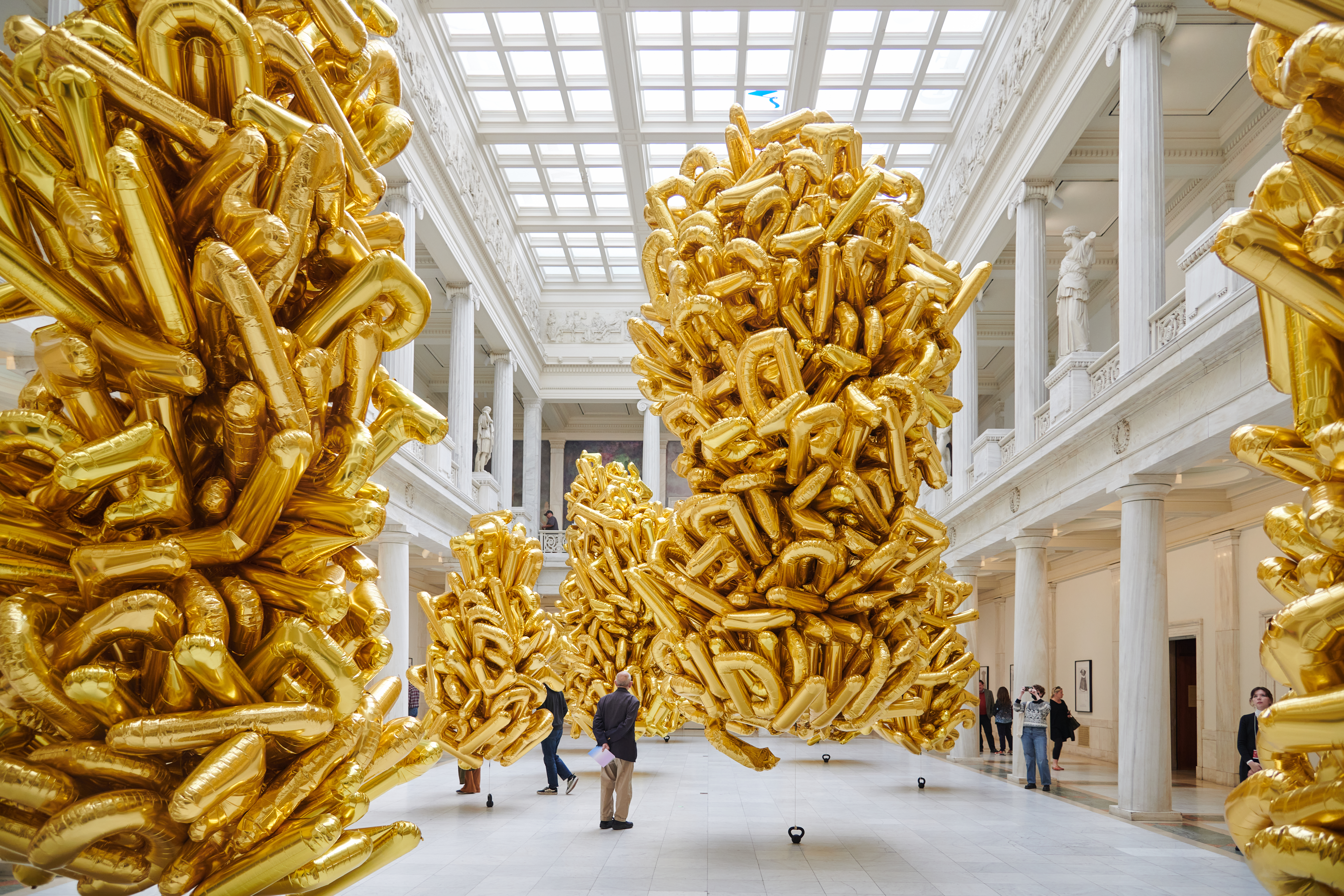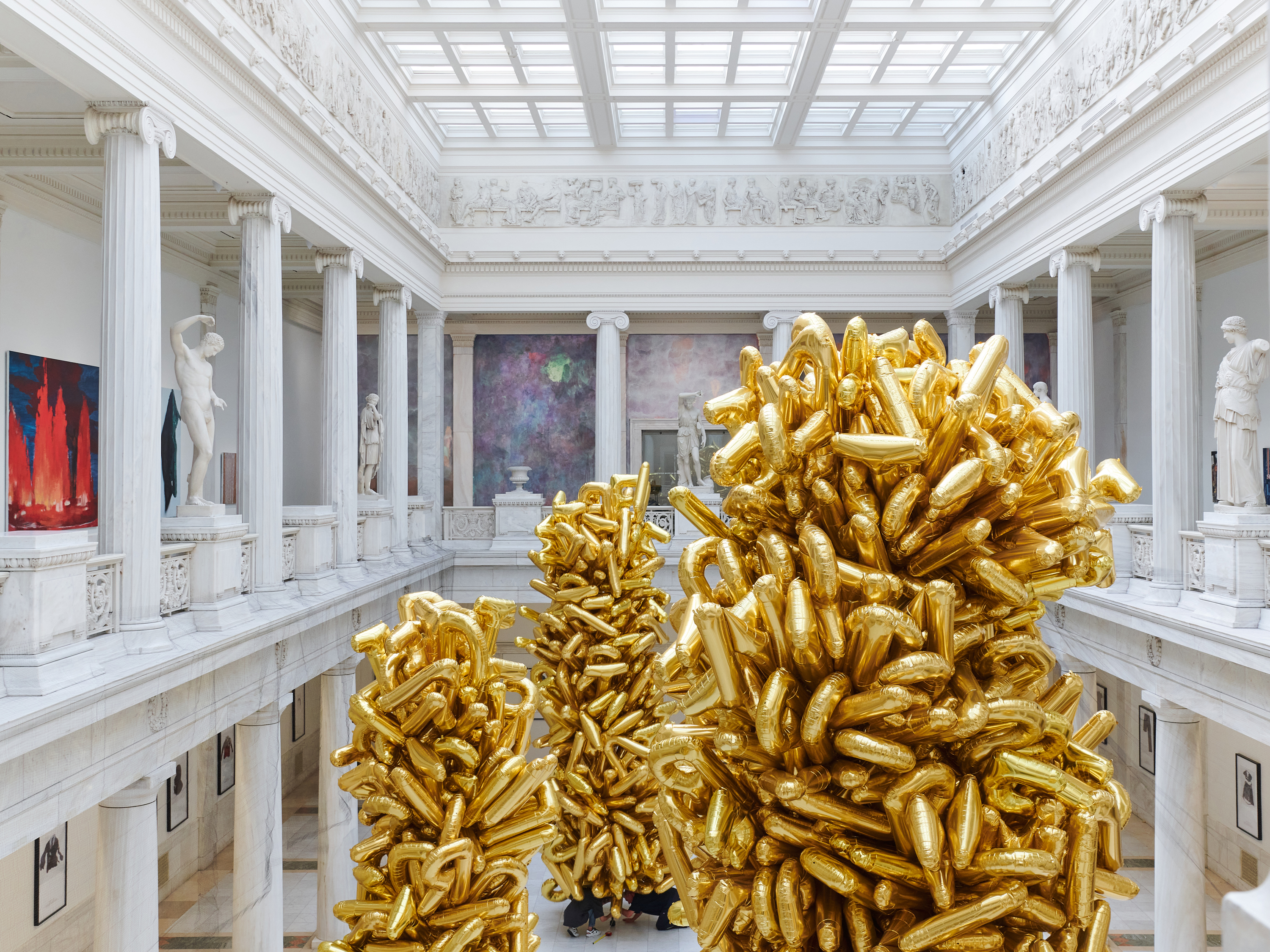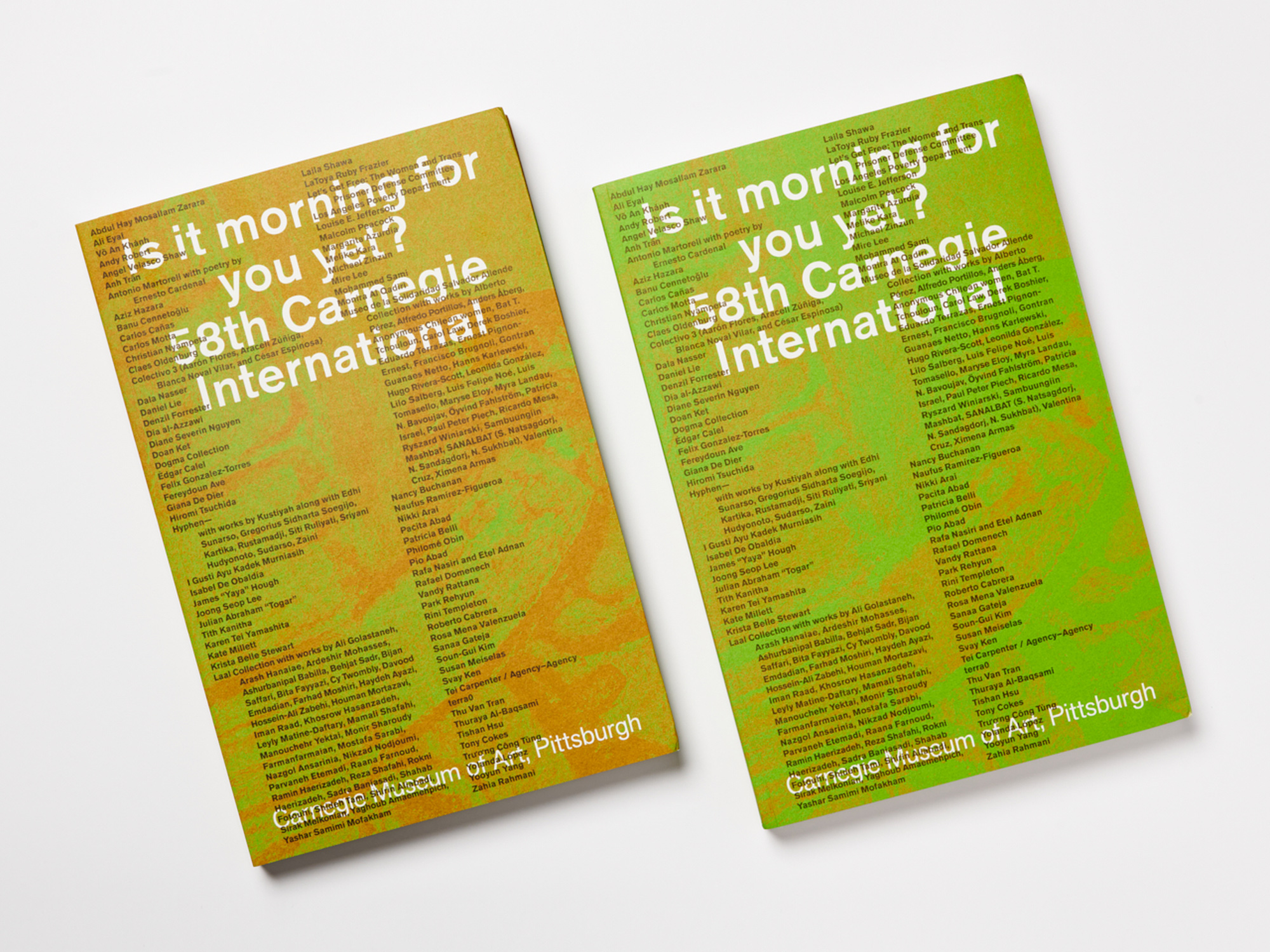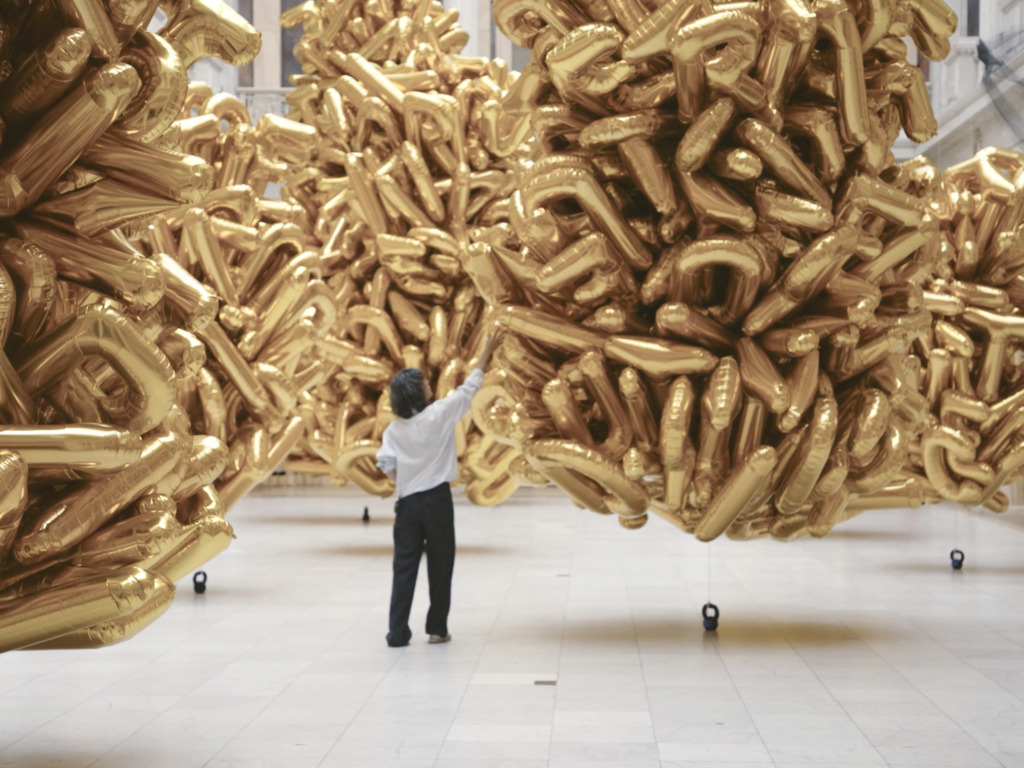The Universal Declaration of Human Rights (UDHR) was proclaimed by the United Nations General Assembly in Paris on December 10, 1948, three years after the end of World War II. According to the UN, it sets out, for the first time, fundamental human rights to be universally protected and has been translated in over 500 languages.
Banu Cennetoğlu’s (b. 1970 in Ankara; lives and works in Istanbul) right? (2022) presents the articles of the UDHR in bouquets of gold letter balloons. As the balloons deflate throughout the run of the show, they leave viewers to question whether any rights can remain without the labor of protecting, extending, and upholding them.
In her cross-disciplinary practice, which includes photography, sculpture, and moving image, Cennetoğlu explores the impossibility of giving form to absence and how the process of attempting to do so deepens our understanding of loss. right? similarly asks if we can protect what is being undermined and never fully actualized as intended.
Given the parameters of the space and duration of the exhibition, not all 30 articles can be presented in the 58th Carnegie International. On view are the first 10 articles.
Article 1—All human beings are born free and equal in dignity and rights. They are endowed with reason and conscience and should act towards one another in a spirit of brotherhood.
Article 2—Everyone is entitled to all the rights and freedoms set forth in this Declaration, without distinction of any kind, such as race, color, sex, language, religion, political or other opinion, national or social origin, property, birth or other status. Furthermore, no distinction shall be made on the basis of the political, jurisdictional or international status of the country or territory to which a person belongs, whether it be independent, trust, non-self-governing or under any other limitation of sovereignty.
Article 3—Everyone has the right to life, liberty and the security of person.
Article 4—No one shall be held in slavery or servitude; slavery and the slave trade shall be prohibited in all their forms.
Article 5—No one shall be subjected to torture or to cruel, inhuman or degrading treatment or punishment.
Article 6—Everyone has the right to recognition everywhere as a person before the law.
Article 7—All are equal before the law and are entitled without any discrimination to equal protection of the law. All are entitled to equal protection against any discrimination in violation of this Declaration and against any incitement to such discrimination.
Article 8—Everyone has the right to an effective remedy by the competent national tribunals for acts violating the fundamental rights granted him by the constitution or by law.
Article 9—No one shall be subjected to arbitrary arrest, detention or exile.
Article 10—Everyone is entitled in full equality to a fair and public hearing by an independent and impartial tribunal, in the determination of his rights and obligations and of any criminal charge against him.



